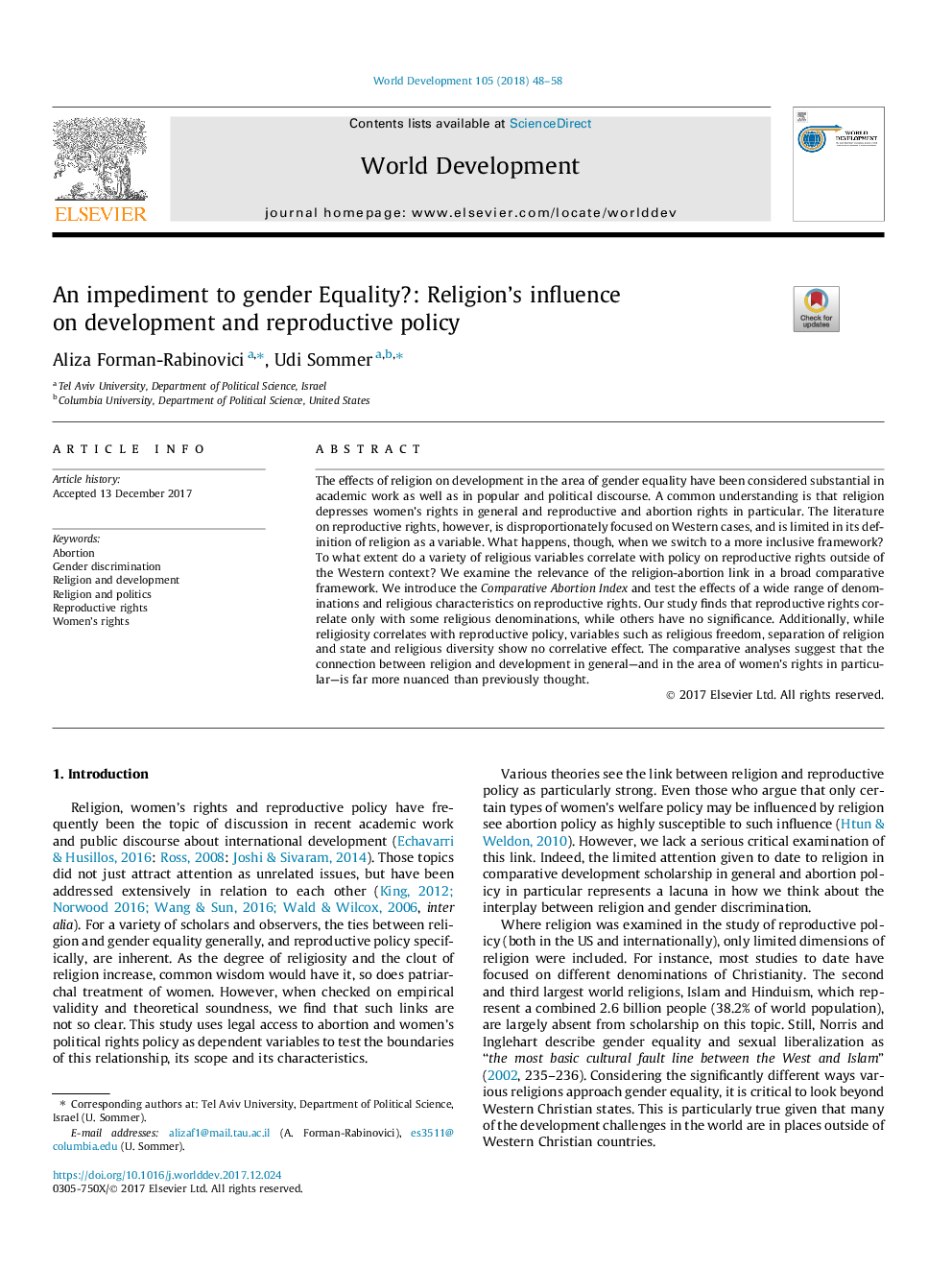| Article ID | Journal | Published Year | Pages | File Type |
|---|---|---|---|---|
| 7392072 | World Development | 2018 | 11 Pages |
Abstract
The effects of religion on development in the area of gender equality have been considered substantial in academic work as well as in popular and political discourse. A common understanding is that religion depresses women's rights in general and reproductive and abortion rights in particular. The literature on reproductive rights, however, is disproportionately focused on Western cases, and is limited in its definition of religion as a variable. What happens, though, when we switch to a more inclusive framework? To what extent do a variety of religious variables correlate with policy on reproductive rights outside of the Western context? We examine the relevance of the religion-abortion link in a broad comparative framework. We introduce the Comparative Abortion Index and test the effects of a wide range of denominations and religious characteristics on reproductive rights. Our study finds that reproductive rights correlate only with some religious denominations, while others have no significance. Additionally, while religiosity correlates with reproductive policy, variables such as religious freedom, separation of religion and state and religious diversity show no correlative effect. The comparative analyses suggest that the connection between religion and development in general-and in the area of women's rights in particular-is far more nuanced than previously thought.
Related Topics
Social Sciences and Humanities
Economics, Econometrics and Finance
Economics and Econometrics
Authors
Aliza Forman-Rabinovici, Udi Sommer,
